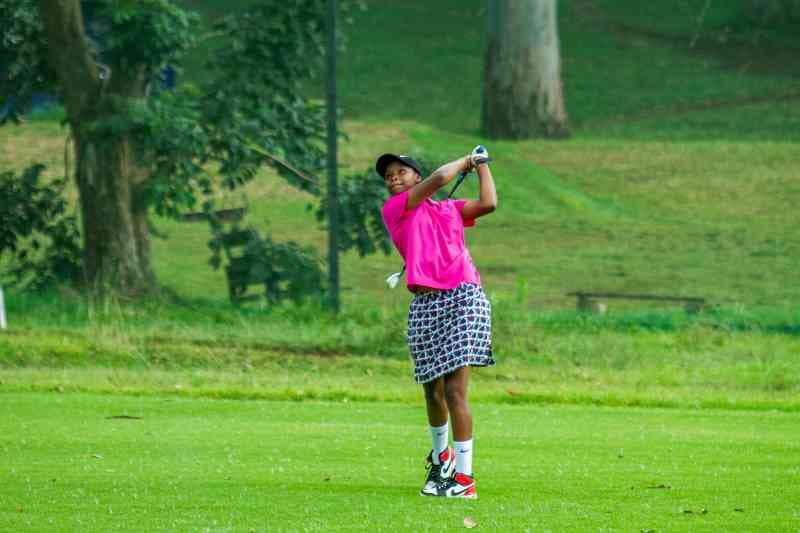We're loading the full news article for you. This includes the article content, images, author information, and related articles.
The 19-year-old student from Nakuru is set to break barriers as the sole female golfer on Team Kenya, aiming for a historic win that could redefine disability sports in the nation.

Nineteen-year-old Jacinta Njeri, a Form Two student at Ngala Secondary School for the Deaf, is poised to make history as she prepares to represent Kenya at the Tokyo 2025 Deaflympics. Scheduled to take place from Friday, 15 November 2025, to Tuesday, 26 November 2025, the games will see Njeri compete as the only woman in Kenya's four-person golf team. With a determined focus, she has promised to bring home a gold medal, a feat that would not only mark a personal triumph but also a significant milestone for deaf athletes and women in Kenyan sports.
Njeri's journey into the world of golf began in 2022, when she was introduced to the sport by Vet Lab Sports Club's resident pro, Shem Orwenyo. Her natural talent was evident early on. In 2019, during a school trip to Nakuru Golf Club, her potential was spotted by professionals, setting her on an unlikely path in a sport often perceived as exclusive. Despite being born prelingually deaf and coming from a humble background in Mau Narok, Njeri has shattered expectations. Her participation in the 2023 Magical Kenya Ladies Open Pro-Am, sponsored by Safaricom, was a testament to her rising profile and resilience. Now, playing off a handicap of 20, she trains rigorously at Nairobi's top courses, including Muthaiga, Vet Lab, and Railways, mentored by her experienced male teammates.
In Tokyo, Njeri will compete alongside a seasoned trio: Isaac Makokha, Gilbert Alikula, and Adan Wario. Makokha is a trailblazer in his own right, having secured Kenya's first-ever Deaflympics golf medal—a bronze—at the 2022 games in Caxias Do Sul, Brazil. This precedent has fueled the team's ambition. "My target is to play a good round of golf and get a gold medal. I hope that the four of us can reach the podium to make the country proud," Njeri stated in an interview on Thursday, 30 October 2025. Her coach, David Kihara, is confident in her abilities, describing her as "young, strong, and committed" with the potential to be a future champion.
Njeri’s ambition extends beyond personal accolades. She aims to inspire a new generation of deaf women to embrace golf. "I do not want to be the only deaf lady golfer in the team so I'm inviting other ladies to learn golf and feel empowered," she expressed. Her journey highlights the significant hurdles faced by athletes with disabilities and women in Kenyan sports. Challenges range from inadequate funding and limited facilities to societal resistance and gender-based discrimination. Institutions like Ngala Secondary School for the Deaf, a national boarding school in Nakuru County, often operate with limited resources, catering to students from low-income backgrounds. Njeri's success, therefore, casts a crucial spotlight on the need for greater investment and support for special needs education and disability sports. The Kenya Ladies Golf Union (KLGU) has an Underprivileged Support Program, which offers aid for fees, equipment, and mentorship, representing a vital framework that can support future talents like Njeri.
Kenya has a proud history at the Deaflympics, participating since 1997 and steadily increasing its medal count. The nation's participation in the Tokyo games was recently secured after the government settled a Sh18 million debt owed to the International Committee of Sports for the Deaf (ICSD), lifting a suspension and allowing Kenyan athletes to compete. As Njeri steps onto the international stage, she carries not just the hopes of her family and school, but the aspirations of a nation eager to champion inclusivity and celebrate athletes who overcome immense odds. Her performance in Tokyo will be closely watched as a powerful symbol of resilience and a potential catalyst for change in the landscape of Kenyan sports.
Keep the conversation in one place—threads here stay linked to the story and in the forums.
Other hot threads
E-sports and Gaming Community in Kenya
Active 8 months ago
The Role of Technology in Modern Agriculture (AgriTech)
Active 8 months ago
Popular Recreational Activities Across Counties
Active 8 months ago
Investing in Youth Sports Development Programs
Active 8 months ago